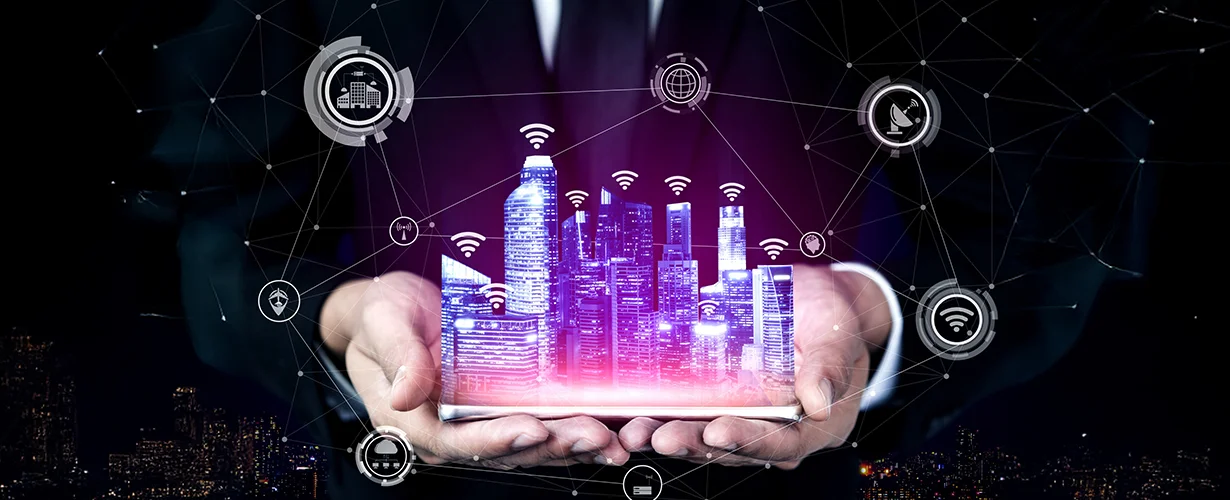The Internet of Things (IoT) is no longer a futuristic concept; it is a transformative force reshaping industries worldwide. By interconnecting devices, systems, and people, IoT is enabling smarter, data-driven decision-making and streamlining business operations.
Companies across sectors are leveraging IoT to enhance efficiency, reduce costs, and deliver superior customer experiences. In an era of rapid digital transformation, IoT is at the forefront, driving innovation and operational excellence.
This blog explores how IoT is revolutionizing business operations, from sales and inventory management to manufacturing, and highlights its pivotal role in digital technology advancements.
The Role of IoT in Revolutionizing Business Operations
- Enhanced Sales and Customer Engagement
IoT technology empowers businesses to gather real-time insights into customer behavior, preferences, and buying patterns. Smart devices and sensors provide data that can be analyzed to deliver personalized recommendations, optimize marketing campaigns, and predict future trends.
- Example: Retailers use IoT-enabled smart shelves that monitor inventory levels and consumer interactions with products. This ensures timely restocking and provides valuable data for targeted promotions.
- Optimized Inventory Management
Efficient inventory management is critical to business success, and IoT is revolutionizing this area with real-time tracking and automated systems. Connected sensors in warehouses monitor stock levels, expiration dates, and storage conditions, minimizing waste and preventing stockouts.
- Example: Companies like Amazon use IoT in their supply chains to track and manage inventory seamlessly, reducing delays and improving customer satisfaction.
- Streamlined Manufacturing Processes
IoT is a key driver of the Industry 4.0 movement, where smart factories leverage interconnected devices to optimize production. Sensors on machinery provide real-time data on performance, enabling predictive maintenance and reducing downtime.
- Example: General Electric uses IoT in its manufacturing units to monitor equipment health, ensuring continuous production and lowering repair costs through proactive maintenance.
- Improved Supply Chain Efficiency
IoT enables end-to-end visibility in supply chain management. GPS-enabled trackers and IoT sensors provide real-time updates on shipment locations, conditions, and expected delivery times, ensuring smooth logistics.
- Example: DHL integrates IoT into its logistics operations to provide clients with accurate delivery timelines and monitor temperature-sensitive goods in transit.
- Energy Efficiency and Sustainability
IoT solutions help businesses monitor and reduce energy consumption, contributing to cost savings and environmental sustainability. Smart energy management systems analyze energy usage patterns and optimize consumption in real-time.
- Example: Manufacturing plants use IoT-connected energy meters to automate energy-saving measures, such as adjusting power usage during non-peak hours.
- Data-Driven Decision Making
The vast amounts of data collected through IoT devices enable businesses to make informed decisions. By integrating IoT with advanced analytics and AI, companies can identify patterns, predict outcomes, and optimize operations.
- Example: A hotel chain uses IoT to collect data on guest preferences, enabling it to tailor services and improve the customer experience while optimizing operational costs.
Conclusion
The Internet of Things is revolutionizing business operations by integrating digital technology into every aspect of organizational workflows. From improving sales strategies and inventory management to optimizing manufacturing and supply chains, IoT enhances efficiency, reduces costs, and drives innovation.
As digital transformation accelerates, businesses that adopt IoT stand to gain a competitive edge by staying agile, responsive, and customer-focused. By embracing IoT, companies are not just upgrading their operations, they are redefining the future of business.

